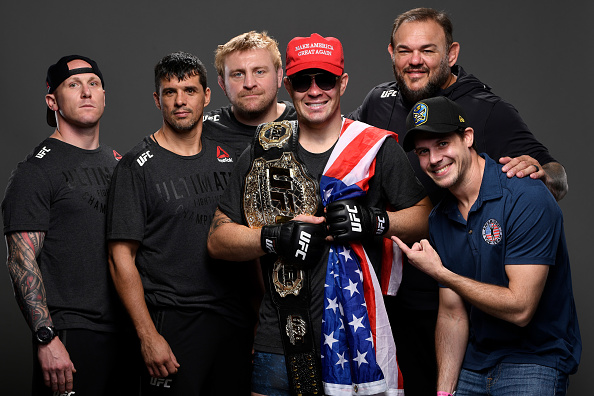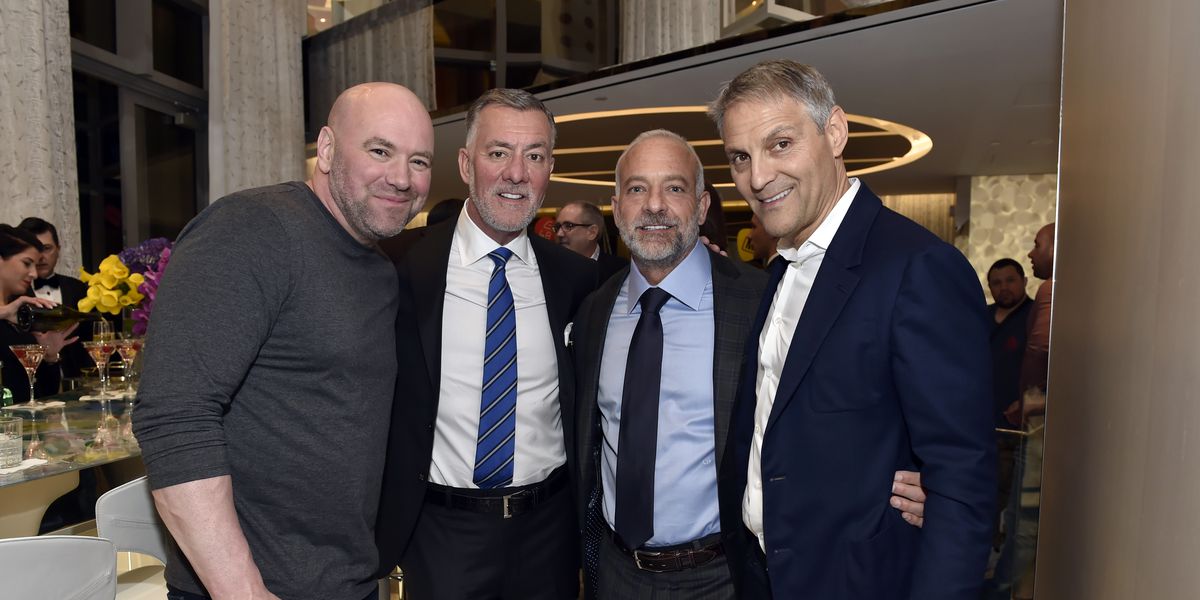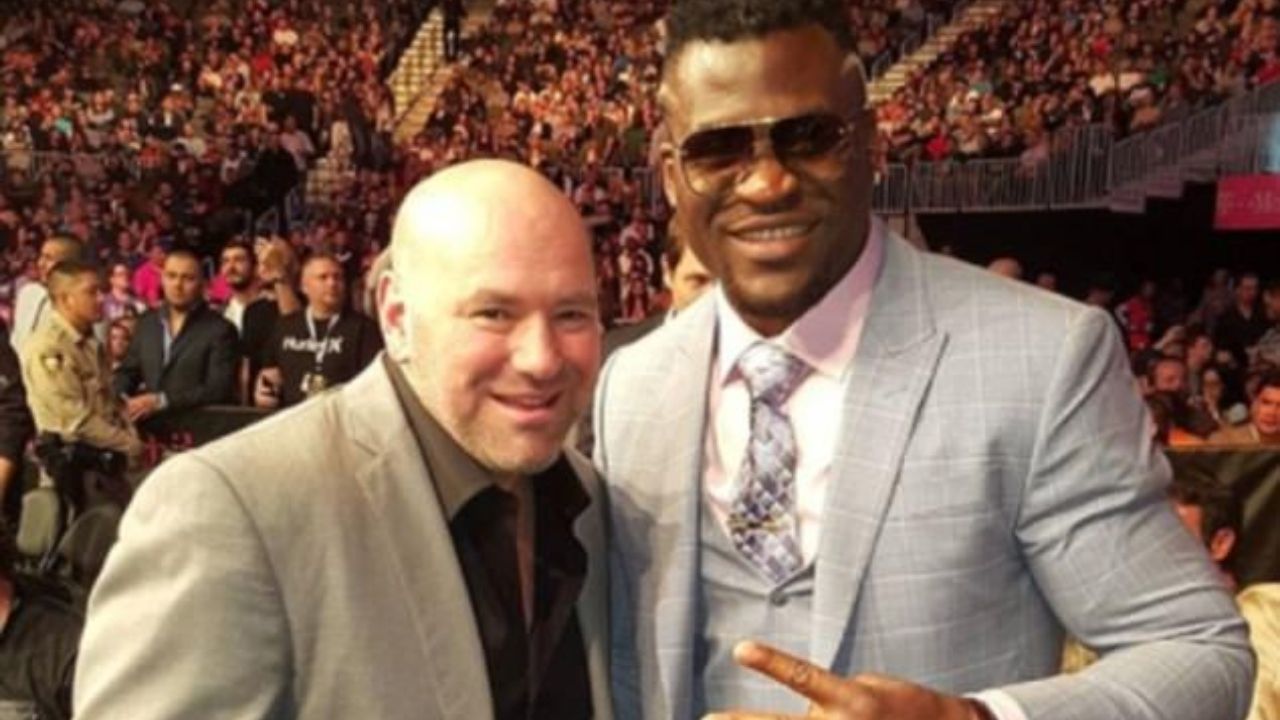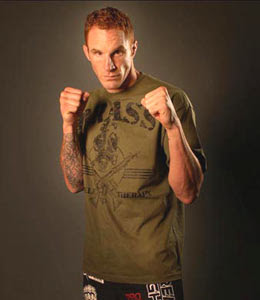The issue of UFC fighter pay isn’t unique to that combat sports organization; any entity that has found a way to make money for the athletes, the owners, the sponsors, and other employees in various levels and capacities has to deal with issues of fair compensation. But since mixed martial arts has been manicured to the point of making money and being considered a legitimate professional sport, the issues of what a fighter’s value is, how much of the pie they should get, the fairness of the contracts they sign, and so on have abounded. But there are at least five reasons that fighters have a hard time leveling the playing field, getting more money for their performances, and gaining leverage over their opportunities to dabble in ownership:
1) The “Crabs in a Bucket” Mentality
Fighters are competitive by nature, and the sport they engage in is a selfish one. As a fighter, the only team you have is the one that helps train, develop, educate, and direct you. But a fighter’s team doesn’t compete alongside them; that fighter gets in the cage alone. This fosters a much different sort of mindset and sense of camaraderie than you would have in the NFL, NBA, NHL, and Major Leagues, where a teammate’s success on the field of play and off of it can have a substantial impact on your pay and sponsorship opportunities.
That’s not the case in mixed martial arts. My pay doesn’t help your pay, my success doesn’t improve your contract negotiations, and my fame doesn’t help build your brand. So there is no reason at all for a fighter to look out for another fighter, no reason to speak up for any other fighter, let alone one who isn’t a part of their circle or their camp. And even if other fighters empathize with your situation, they don’t sympathize with it.
Conor McGregor may have indirectly helped opponents make money, expand their asking price, and improve their Q ratings. But that’s only fighters who were in direct opposition to him in the cage; he doesn’t do that for the fighters he isn’t booked to fight or aren’t potential opponents ranked at a certain level. The rest of those guys are on their own — they have to earn what they get, and Conor isn’t extending his hand to empower them, negotiate contracts, or create opportunities for them outside of the sport.
I mention McGregor because he is one of the “name brand” fighters who could do this. Georges St-Pierre, Ronda Rousey, Jon Jones — I’m not saying they don’t help their camps, I’m not saying they didn’t help the sport as a whole. I am saying they do not individually empower, educate, direct, or improve the positions of their fellow fighters. And if the people at the top of the sport aren’t doing this, what the hell do you think that the other fighters fighting for scraps are doing? Clearly, they aren’t trying to protect, support, or fight for the financial well-being and sponsorship opportunities of other fighters, given that their success often comes at the expense of those others.
2) The Inability To Get On the Same Page
On the other hand, organizations like the UFC are on the same page. Dana White, Endeavor shareholders, and UFC employees have the same goals — to maximize profits — and so they follow the same blueprint. Either you are part of the corporate structure and fall in line with company goals and guidelines, or you have to go.
Fighters aren’t on the same page; they don’t share a common goal because they don’t operate in the same structure, they don’t want the same things, and they aren’t subject to the same rules, regulations, and restrictions in order to maintain their positions, excel in their positions, and negotiate their positions. If all of the people involved on the fighter side are trying to go 5-7 different directions, how the hell are they going to hold their position, let alone progress it? They can’t.
3) The Unwillingness To Walk Away
Another reason the fighters can’t make headway is that they are unwilling to walk away from the UFC. Due to the brand presence of the Ultimate Fighting Championship, fighters will openly and repeatedly say they don’t want to leave the UFC, basically stating, “Regardless of how they treat me, pay me, or support me, I am not going to walk away.”
If you are dealing in negotiations, whichever party is more capable of walking away or cutting ties is the party that is actually in control of things. The UFC already has a tremendous amount of leverage over fighters, as well as a willingness to use it. They will put them in bad matchups, they will request they take short notice fights, they will hold them out of fights; these are all things that can hinder a fighter’s value and opportunities for success. The fighters, on the other hand, won’t walk away, won’t say no, and will take on short notice fights or bad matchups that won’t help them but could ruin them. And all because they value their relationships with the UFC more than the UFC values its relationships with them. That means the UFC will always have the leverage over a fighter who primarily wants to be in the UFC business, because the UFC is never going to primarily be in the business of any fighter, regardless of how big they are.
4) Too Little, Too Late (Scenario A)
Fighters often look after themselves, as I mentioned earlier; when they are in the UFC’s favor, they reap the full benefits of that favor. As a result, they become company men — as they are getting paid and being pushed, they speak out against other fighters, questioning their injuries, motivations, and professionalism. But one of two things eventually happens:
Once the fighter wants more or wants their worth, at that point the UFC shows their true self and lashes out, because this is a fighter who they have built up, financially empowered, and made into a star. This fighter that they have done so much for is asking for more instead of being happy with what they have been given. Jon Jones and Francis Ngannou are two recent examples of how the UFC responds when money becomes the talking point, especially when it becomes a public conversation.
It’s only then that the fighter speaks up and speaks out against the organization, after spending two or three years telling us how thankful they are and how much the UFC has done for them. This often confuses fans and sends them right back to the side of the organization.
5) Too Little, Too Late (Scenario B)
The second issue these fighters encounter as they continue to sing the praises of the UFC, is that once they start to lose — which is another circumstance that helps them lose favor in the eyes of the UFC brass — they see the truth about how the UFC views and values them. Then they begin to speak up and speak loudly. But at that point, the fans see it as sour grapes — “You no longer can compete at an elite level, so now you want to talk about money?”
Advocating to be paid fairly is the wrong discussion to have when your value to the organization has decreased due to your inability to win fights; it undercuts your argument and your credibility. The counter-argument becomes “You’re only complaining because you are performing poorly, not because money is the actual issue.”
The idea of fighter pay is a topic that is often broached, but we haven’t quite figured out a way to really address it in an effective manner, not one that benefits the fighters; the thing is it’s not our battle to fight, it’s not our victory to claim. This is a battle that can only be won by the people most directly impacted by it, that’s the fighters; which is why I made this article, to point out how the fighters themselves make the job of improving fighter pay even harder than it needs to be. As much as fans care, as much as we empathize we can only do so much; especially when the fighters themselves are determined to give each and every possible advantage to the promotion in their battle before a better quality of life, a better future and financial empowerment.








